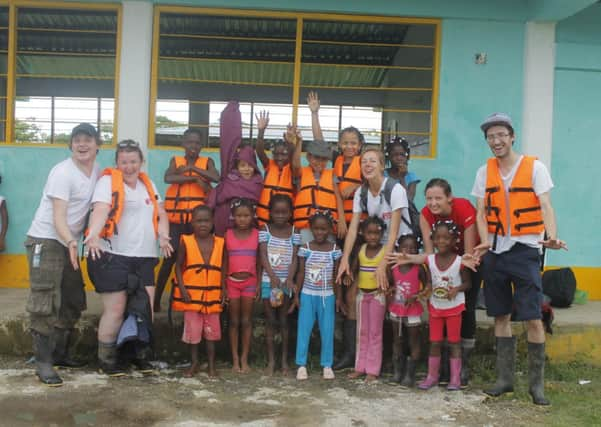A lesson in why foreign aid is vital to those living in fear


When Poppy Winks agreed to travel to Colombia as a volunteer with Christian Aid, she didn’t know what to expect. The region she went to - Choco - has been the focus of civil unrest for decades with the native population displaced by armed paramilitary.
“Farmers who have lived there for generations were forced from their land by armed groups who wanted to grow things like bananas for export,” says Poppy. “We heard one particularly harrowing story about a group of villagers who were forced off their land and given very basic aid which was not enough to live on.
Advertisement
Hide AdAdvertisement
Hide Ad“Starving, they decided to return to their home, but were stopped by the paramilitary, who took the youngest of them, aged just 21, hostage. The villagers faced an agonising decision: leave the person they had taken behind or stay and put all their lives at risk. In the end, they had to go and they never saw the boy again.” There are countless similar stories across the country. According to sources, more than 5m Colombians have been displaced over the last 50 years - a figure second only to that in Syria. However, the prospect of a peace accord may finally be on the horizon.
With the help of Christian Aid and its partner the Inter-church Commission for Justice and Peace (CIJP), communities have secured land rights and established a safe ‘humanitarian zone’ in which they can now live peacefully. CIJP also provides psychological support to those affected by the armed conflict.
“In the humanitarian zones the rules state no-one can enter if they are armed,” says Poppy. “And because there has been a very high prosecution rate for people who flout its conditions, it is working well.”
The troubles in Colombia, which claim more than 1,000 lives a year, began in 1964 as a conflict between the government, paramilitary groups, crime syndicates and left-wing guerrillas. The largest guerrilla group, the Revolutionary Armed Forces of Colombia (RAFC) claims to be fighting for the rights of the poor, protecting them from government violence and promoting social justice through communism.
Advertisement
Hide AdAdvertisement
Hide AdHowever, they are seen by both the government and paramilitary groups as a divisive force. Amid the murky politics, both the RAFC and paramilitary groups have also been accused of engaging in drug trafficking and terrorism.
Talks are currently taking place in Havana, Cuba in a bid to resolve the issue and to establish new laws governing the use of agricultural land, disarmament and the growing of illicit drugs. Poppy adds: “We have pockets of deprivation in this county but nothing like this. I think it is important that people in this country be aware of the plight of others abroad and do what they can.”
A spokesman from Christian Aid said: “Christian Aid Week (May 11–17) communities across Yorkshire will be showing their solidarity, when volunteers from local churches arrive at their doorstep to ask them to support families from war-ravaged countries to rebuild their lives and live a life free from fear.
“Christian Aid works in some of the world’s poorest communities in around 50 countries at any one time. We act where there is great need, regardless of religion, helping people to live a full life, free from poverty. We provide urgent, practical and effective assistance in tackling the root causes of poverty as well as its effects.
Advertisement
Hide AdAdvertisement
Hide Ad“Christian Aid’s core belief is that the world can and must be changed so that poverty is ended: this is what we stand for. Everything we do is about ending poverty and injustice: swiftly, effectively, sustainably.
To donate to Christian Aid Week, give online at www.caweek.org or call 08080 006 006. To find out more log onto their website.